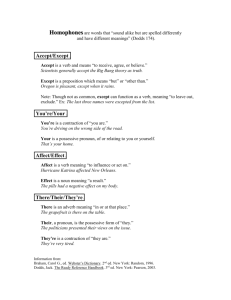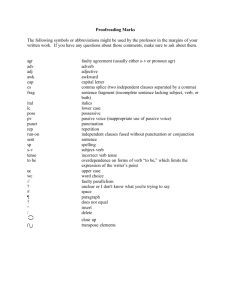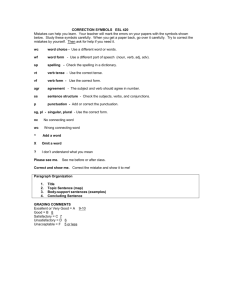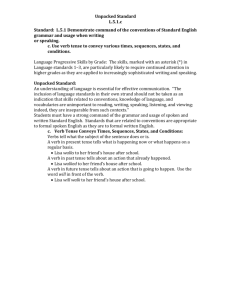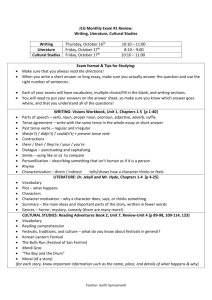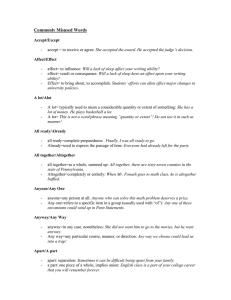Commonly Confused Words - College of the Siskiyous
advertisement
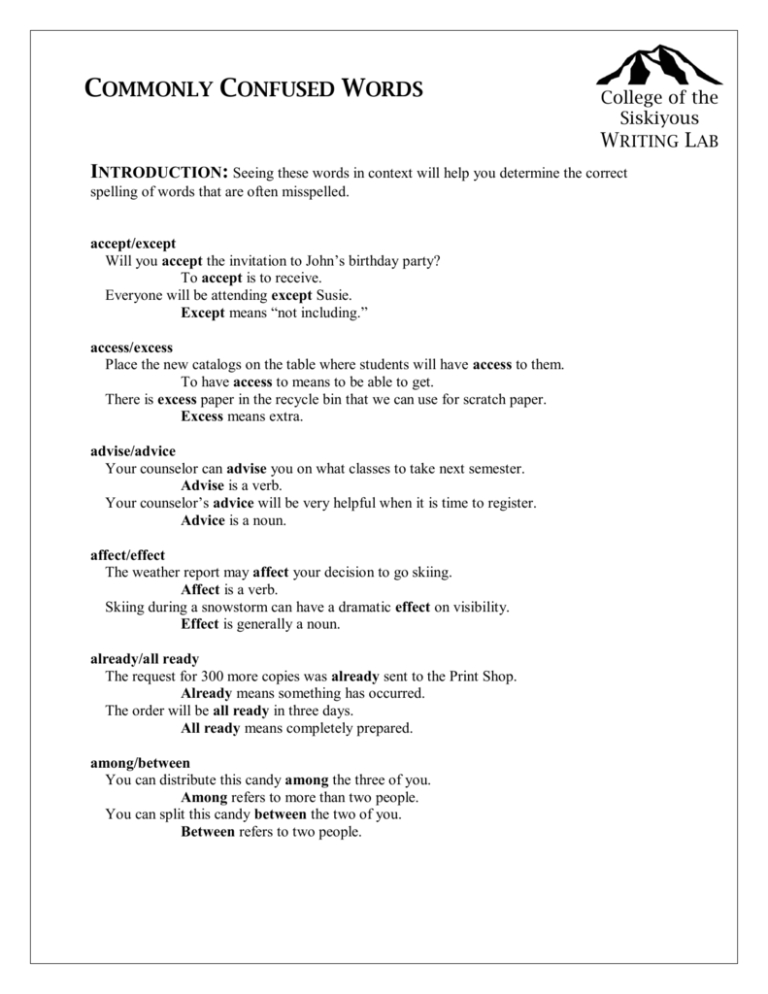
COMMONLY CONFUSED WORDS College of the Siskiyous W RITING LAB INTRODUCTION: Seeing these words in context will help you determine the correct spelling of words that are often misspelled. accept/except Will you accept the invitation to John’s birthday party? To accept is to receive. Everyone will be attending except Susie. Except means “not including.” access/excess Place the new catalogs on the table where students will have access to them. To have access to means to be able to get. There is excess paper in the recycle bin that we can use for scratch paper. Excess means extra. advise/advice Your counselor can advise you on what classes to take next semester. Advise is a verb. Your counselor’s advice will be very helpful when it is time to register. Advice is a noun. affect/effect The weather report may affect your decision to go skiing. Affect is a verb. Skiing during a snowstorm can have a dramatic effect on visibility. Effect is generally a noun. already/all ready The request for 300 more copies was already sent to the Print Shop. Already means something has occurred. The order will be all ready in three days. All ready means completely prepared. among/between You can distribute this candy among the three of you. Among refers to more than two people. You can split this candy between the two of you. Between refers to two people. amount/number The amount of sand on a beach would be difficult to measure. Amount is for objects we can’t count, such as sugar or salt. The number of seagulls is much easier to count. Number is for objects we can count. conscience/conscious Let your conscience be your guide. Your conscience is what helps you do the right thing. The patient was not conscious during the operation. Conscious is the state of being awake or aware. decent/descent This website will be a decent reference for my research paper. Decent means good or acceptable. We will begin our mile descent back to land in five minutes. Descent refers to movement downward. It also refers to one’s heritage. dessert/desert Cheesecake is a delicious dessert. Dessert is something sweet to eat. The Mojave is a desert in California. A desert is a place with little water or rain. fewer/less There are fewer people here than we expected. Fewer is for countable objects. The salt shaker is less than half full. Less is for non-countable objects. its/it’s The puppy was chasing its tail. Its is the possessive form of “it.” It’s fun to watch the puppy play. It’s is a contraction of “it is.” knew/new He knew there was going to be a spelling test today. Knew is past tense for “know.” The new books have finally arrived. New is the opposite of “old.” lead/led Michael is going to lead a group of novice climbers up the mountain. Lead is the present tense. Last year he led only advanced groups. Led is the past tense of “lead.” Don’t use paint that has lead in it. Lead is a metal. loose/lose Your shoelace is loose. Loose is the opposite of tight. Tie your shoe so you don’t lose it. Lose is a verb meaning “misplace.” passed/past The train has already passed us. Passed is past tense for the verb “pass,” meaning to “go by.” Steam engines are now a thing of the past. Past refers to a period of time before the present. principle/principal Principles are guidelines that we follow. Principles are things. The principal is your pal. Principals are people. quiet/quite We need to be quiet while the children are napping. Quiet refers to a lack of noise. It is quite important to follow this practice. Quite is like “very.” roll/role When you let go of the rock, it will roll down the hill. Roll is a verb meaning to continue in a circular motion. It can also be a noun as in “cinnamon roll.” Elizabeth got the lead role in the play. Your role is the position that you fill. then/than Julie goes roller skating now and then. Then refers to time. Then often follows the conditional “if.” She likes skiing better than skating. Than refers to comparison, as in “more than.” their/there/they’re We are all going to travel in their car. Their is a possessive, plural pronoun. We will arrive there at noon tomorrow. There is a place. They’re going to join us when we arrive. They’re is a contraction of “they are.” threw/through Robert threw the ball to home base. Threw is past tense for the verb “throw.” The ball went flying through the air. Through is a preposition describing location. to/two/too The students are going to the bowling alley tonight. To is a preposition. To is also part of the infinitive form of a verb as in “to walk.” There will be two activities to choose from. Two is a number. Pizza will be served, too. Too is like also. were/where/wear The fireworks were spectacular. Were is the past tense of “are.” Where are you going after the show? Where describes location. What are you planning to wear tomorrow? Wear is a verb meaning to have on the body. who’s/whose Who’s going to drive the van? Who’s is a contraction of “who is.” I don’t know whose sweater that is. Whose is the possessive of “who.” your/you're I hope your spelling improves after looking over some commonly confused words. Your is the possessive for “you.” You’re bound to learn to spell better with practice. You’re is a contraction of “you are.”
